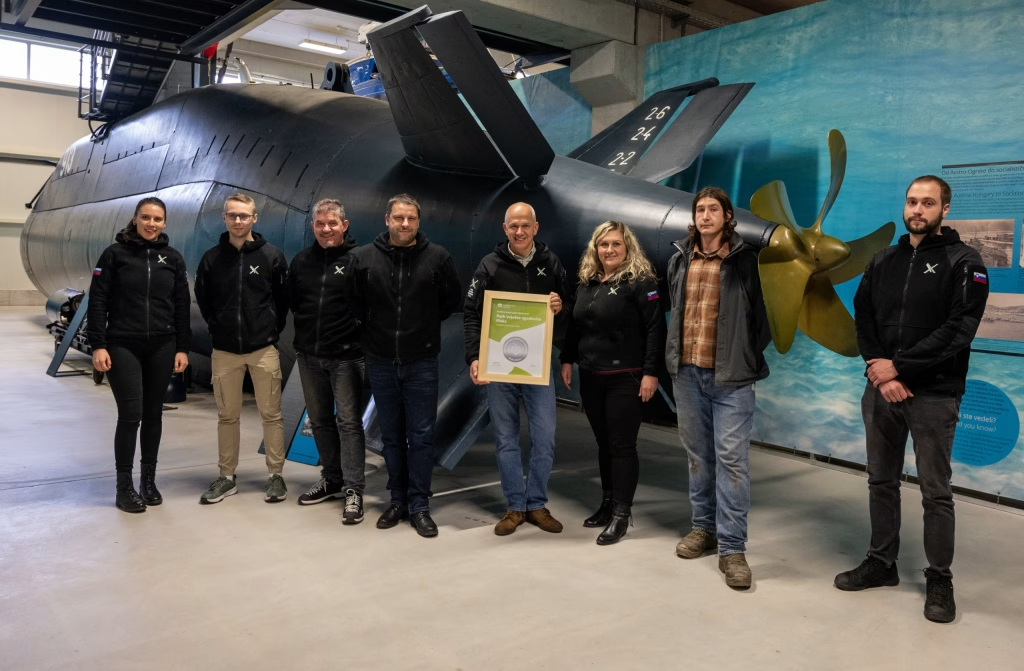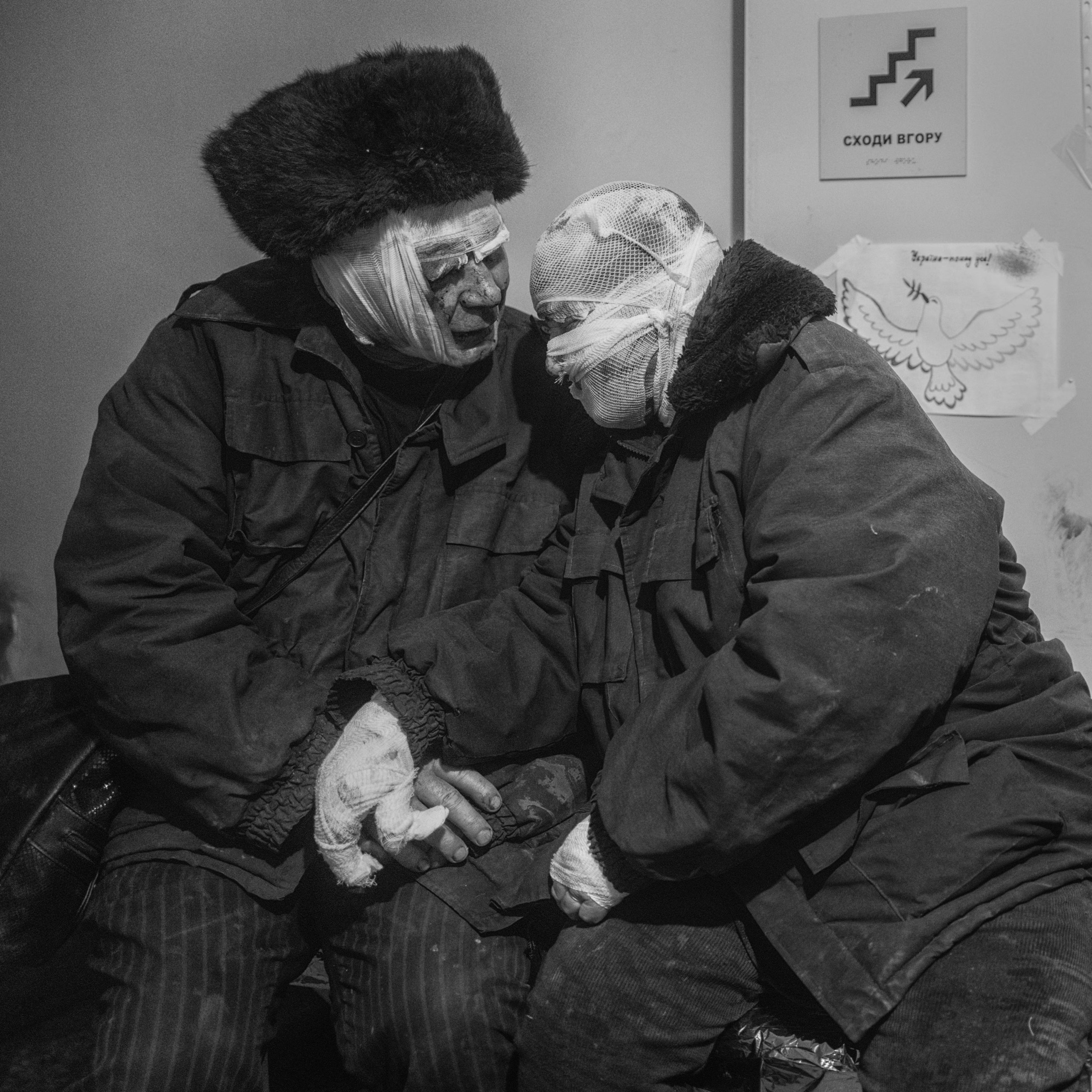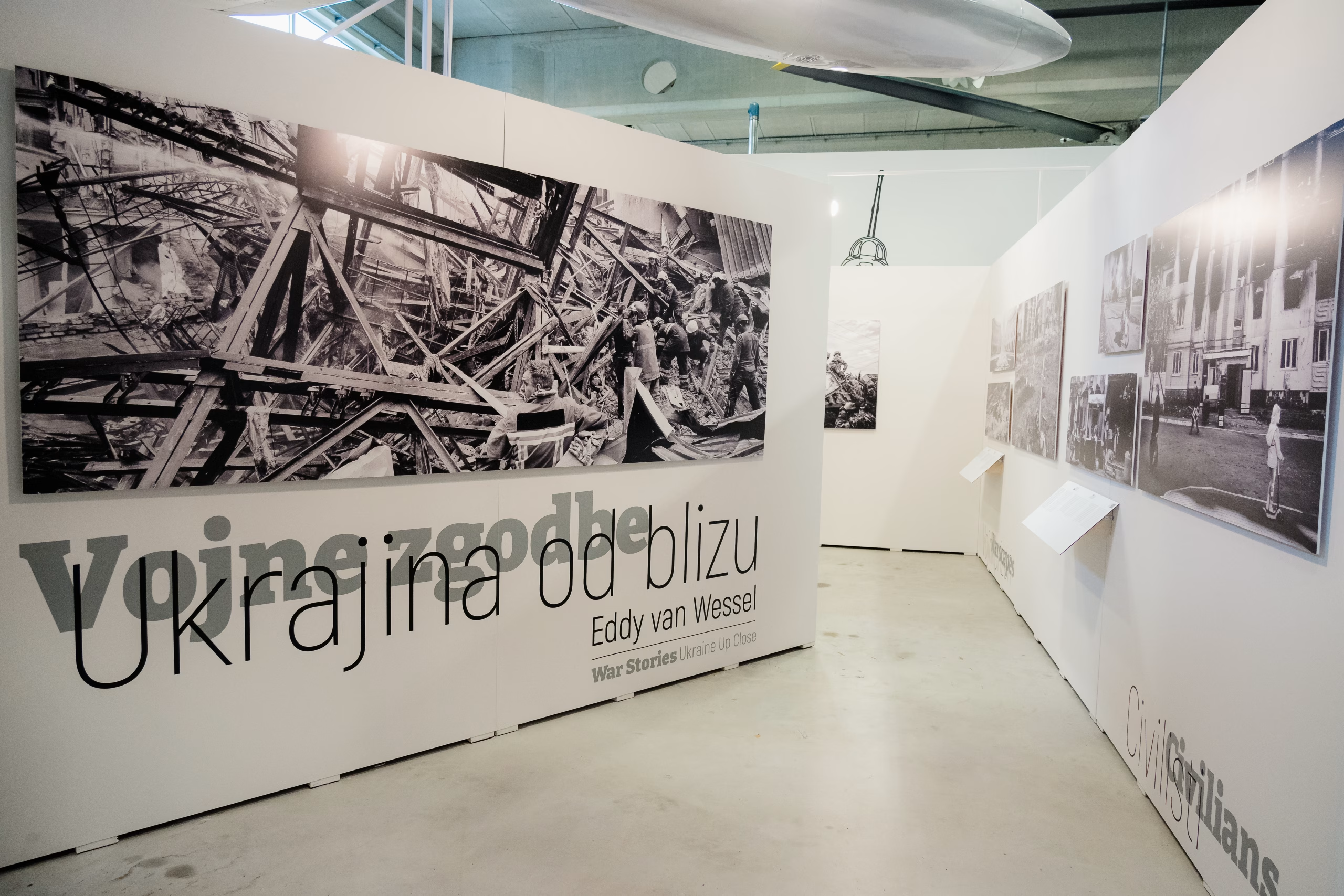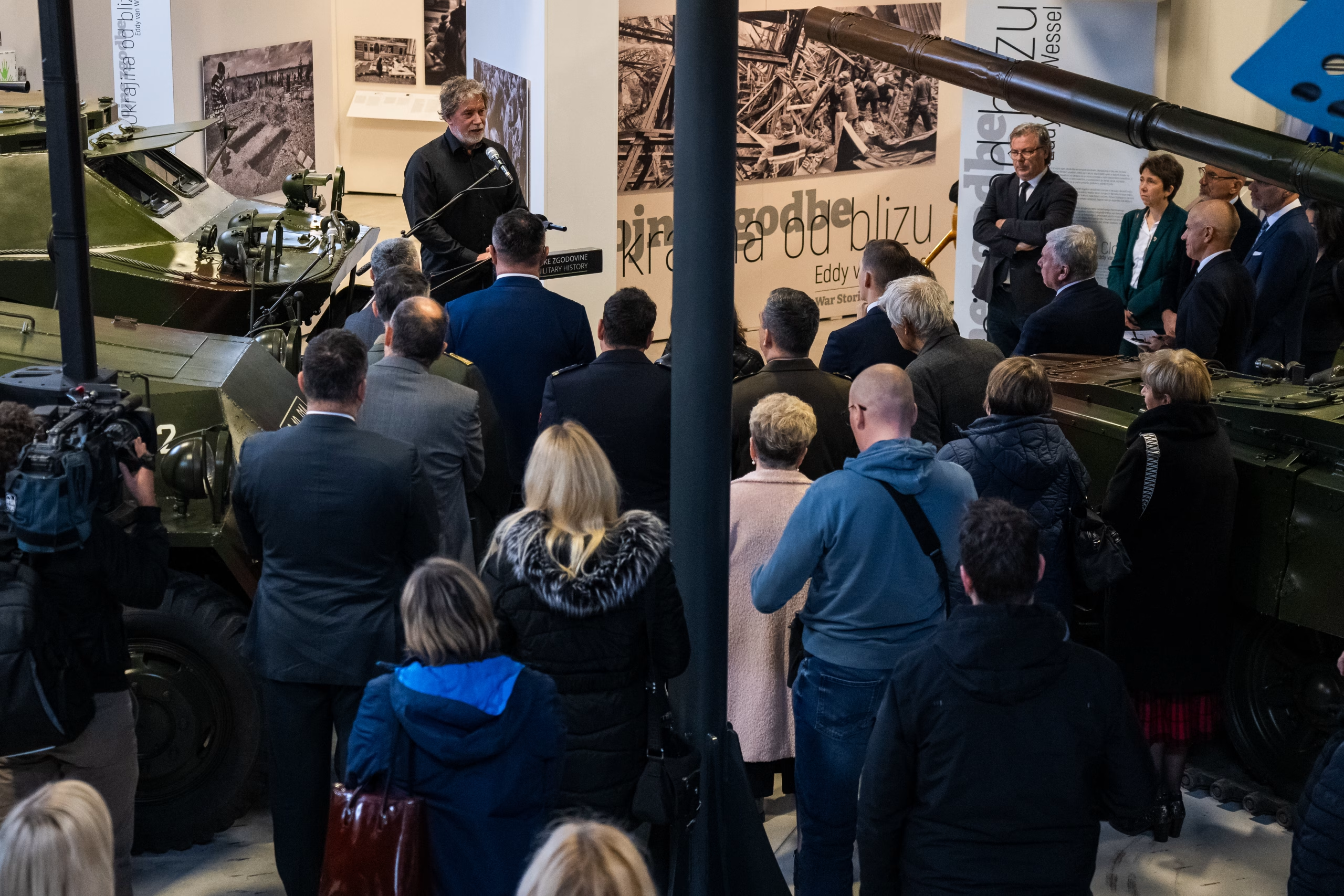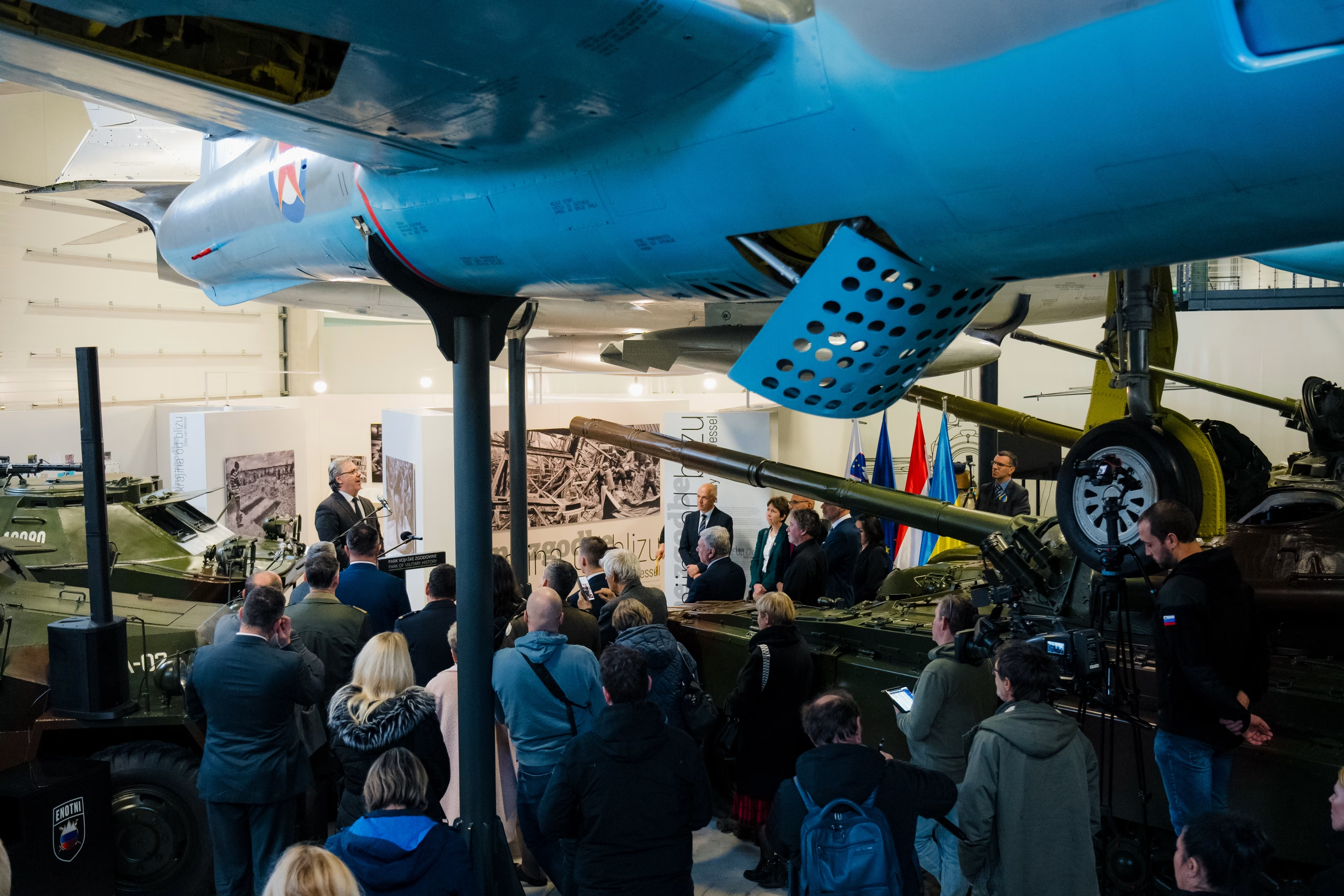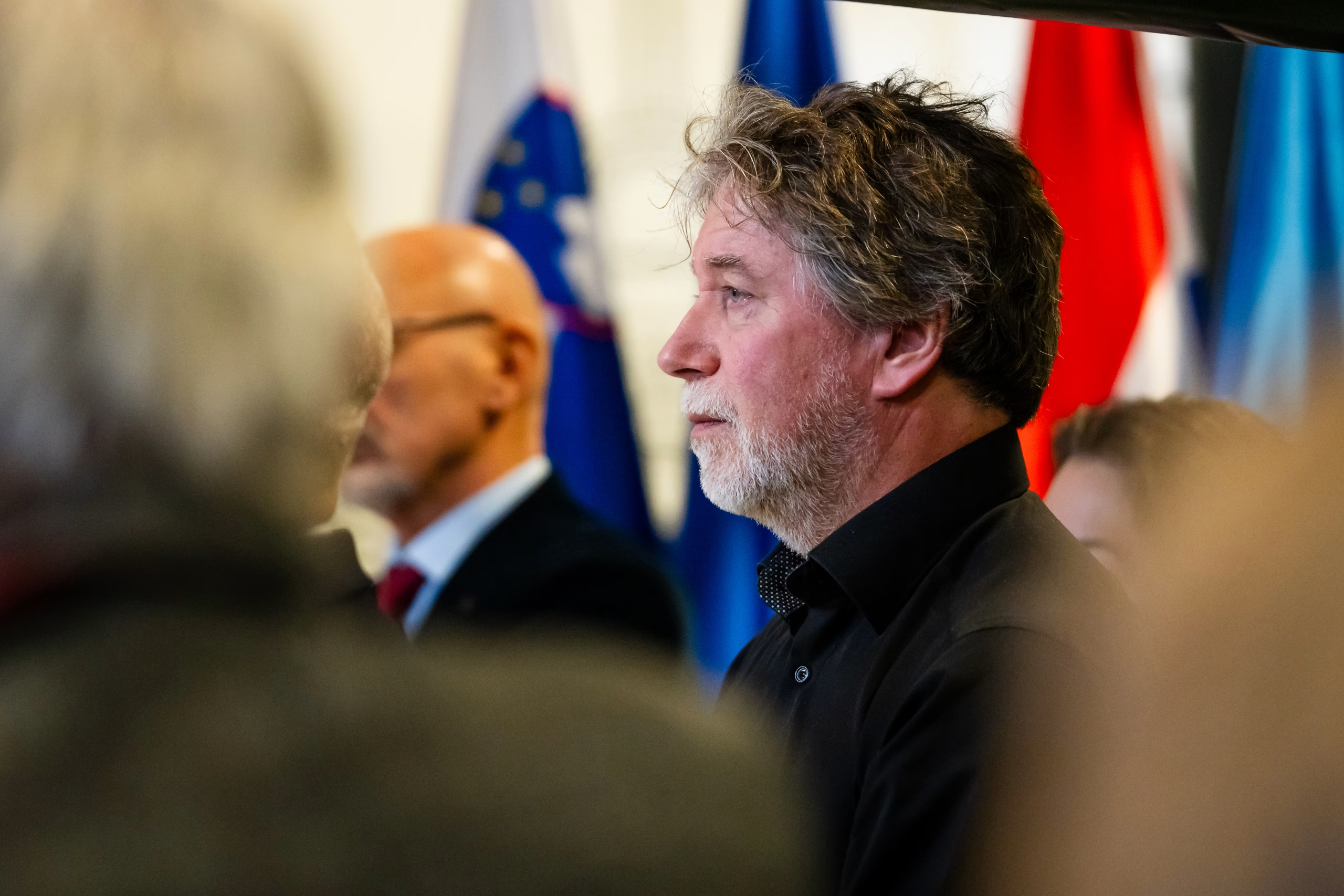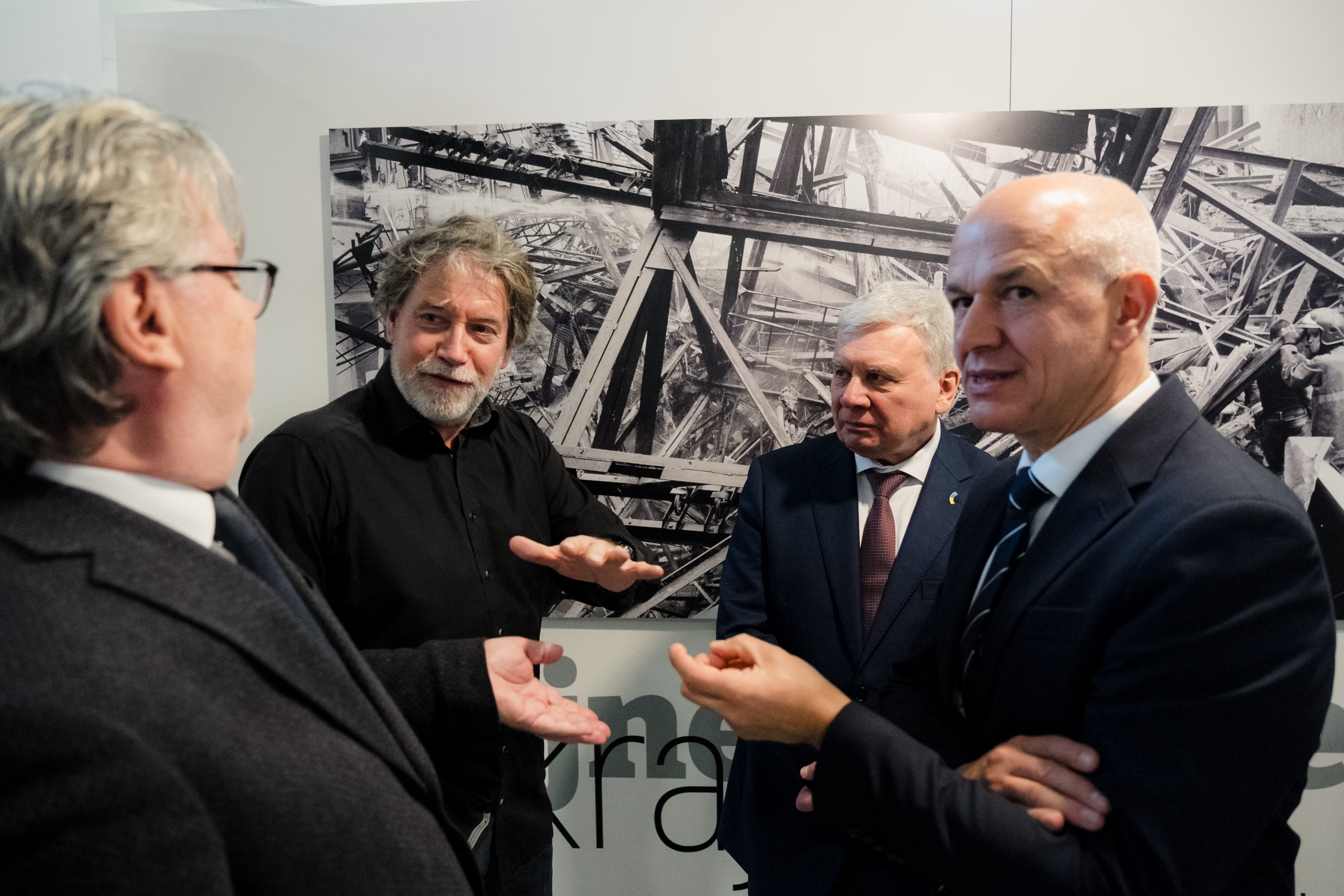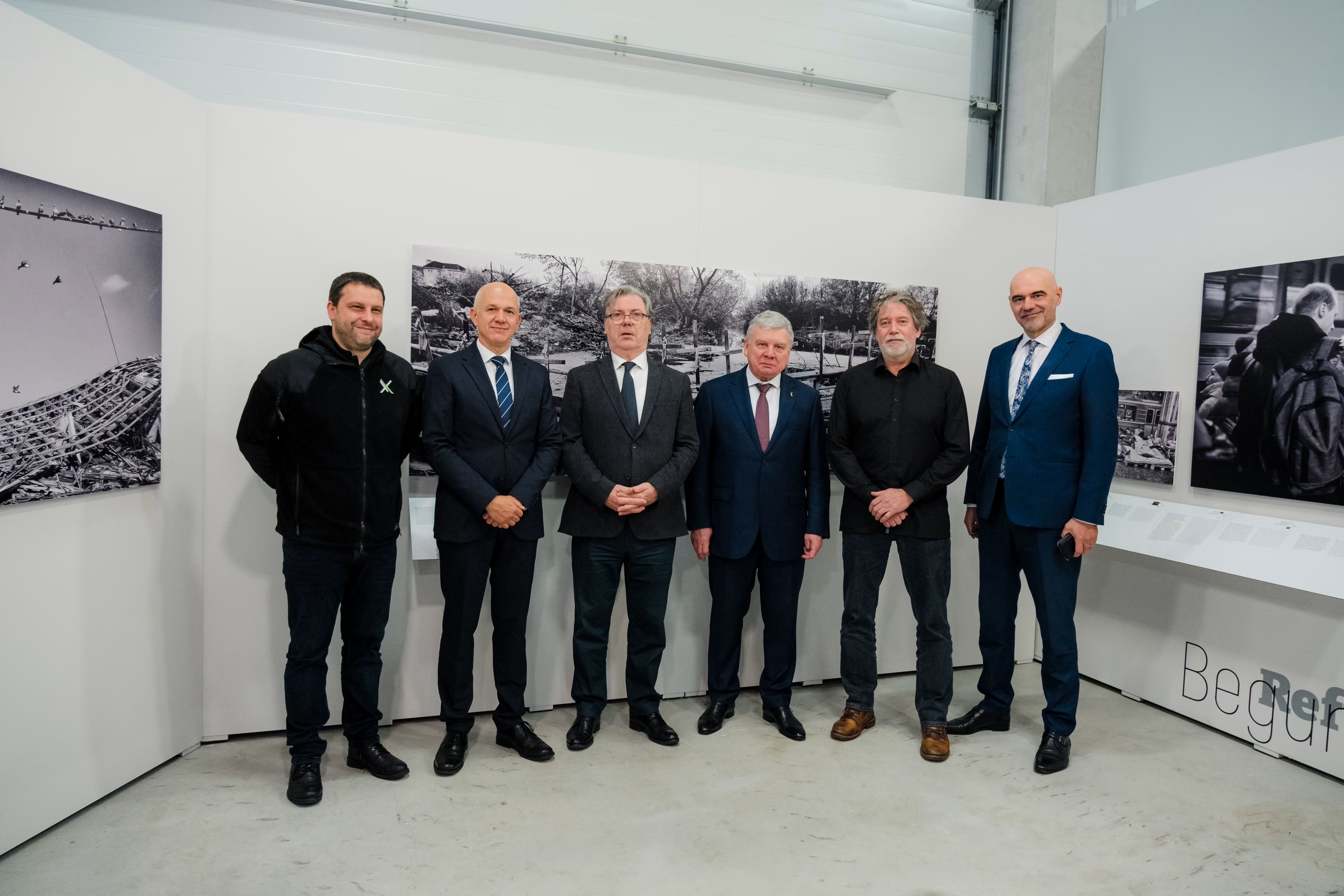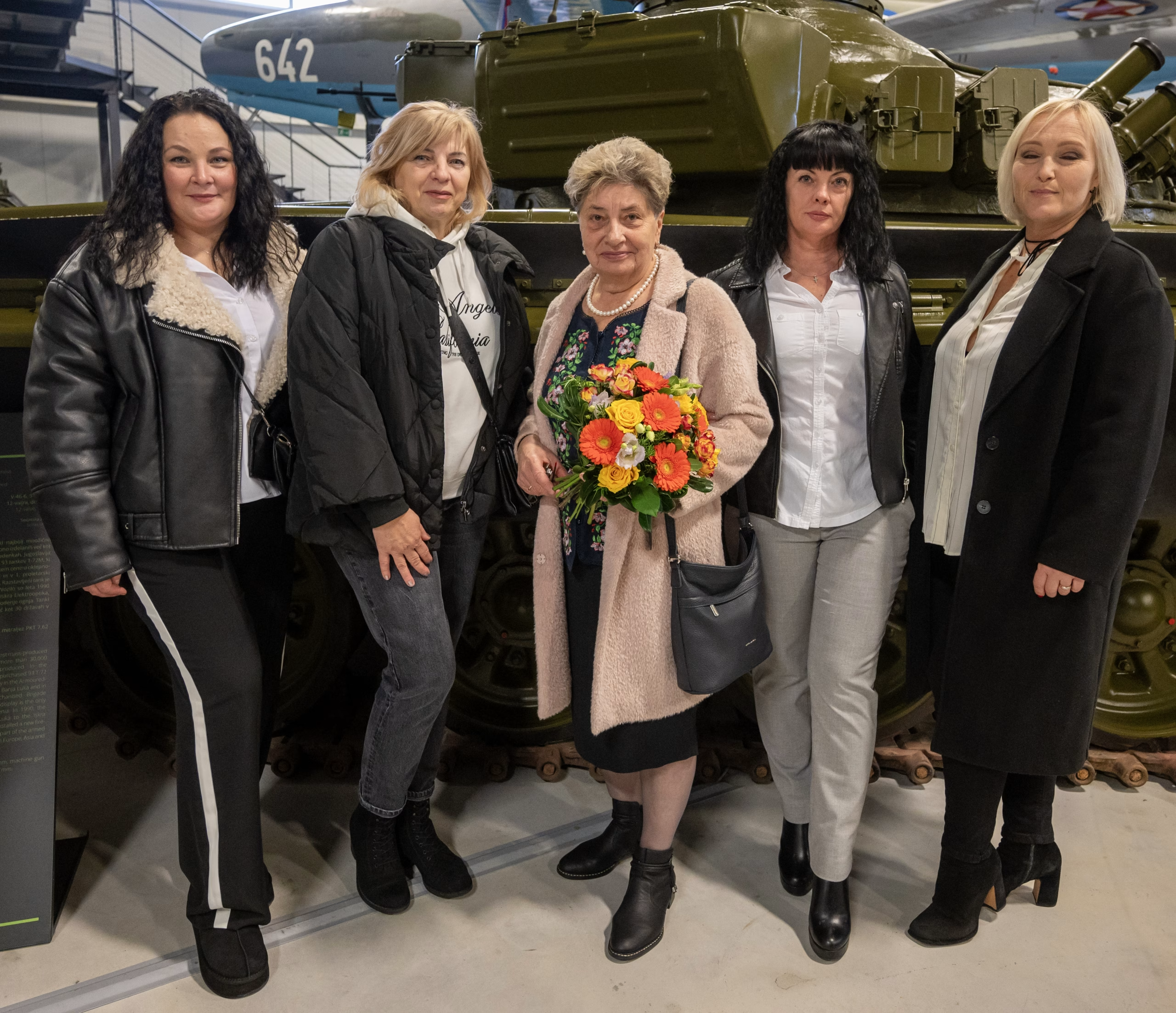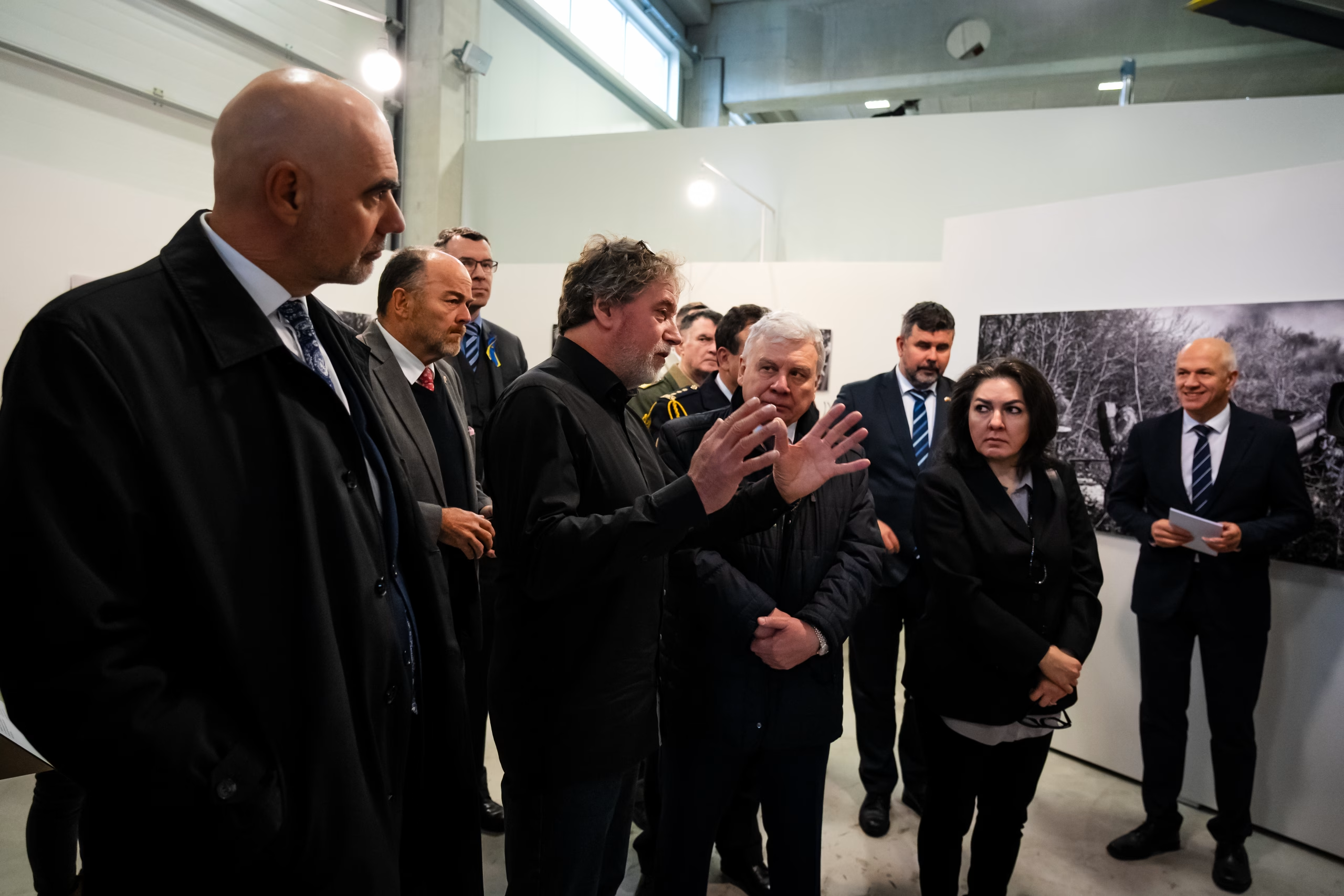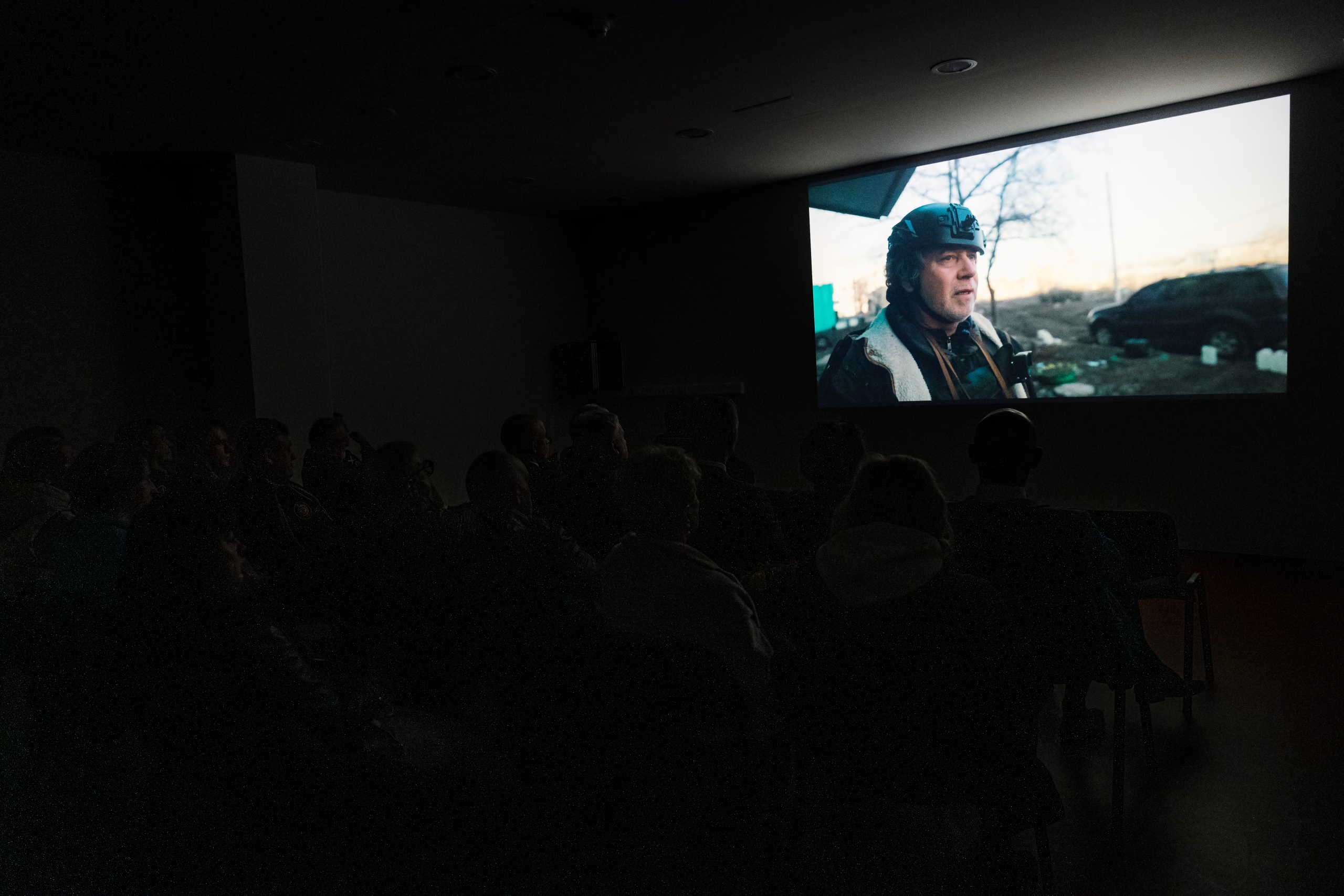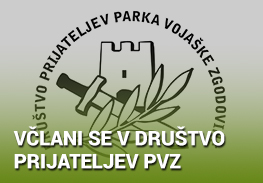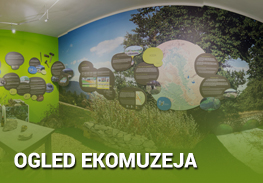Lecture about the exhibition: “The Story of Two Transports: Jews of Međimurje and Prekmurje During the Holocaust”
Since the beginning of January 2025, the Park of Military History has been hosting the exhibition “The Story of Two Transports: Jews of Međimurje and Prekmurje During the Holocaust.”
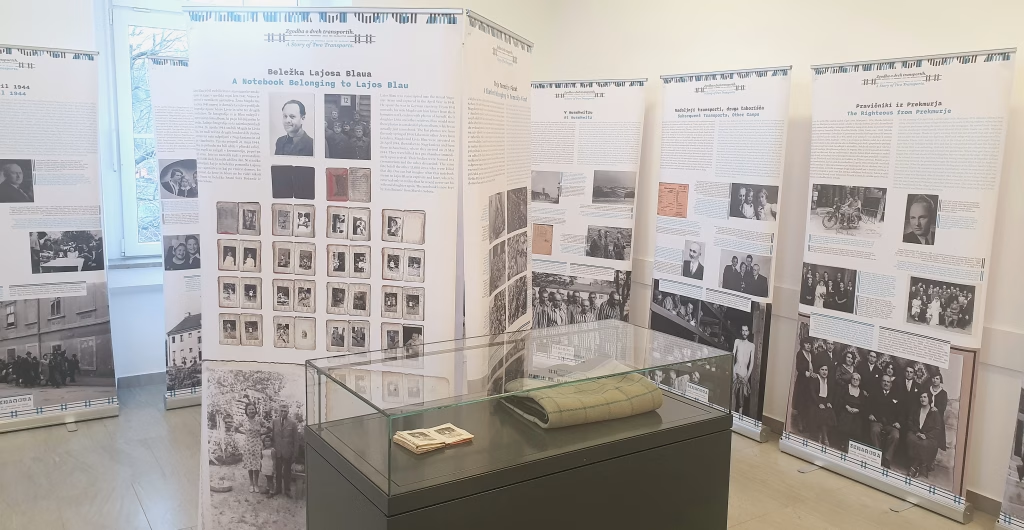
On Tuesday, 21 January at 17:00, the Park of Military History will hold a lecture and guided tour of the exhibition “The Story of Two Transports: Jews of Međimurje and Prekmurje During the Holocaust,” which was prepared as part of the “Never Forget” project by the Jewish Heritage Centre Synagogue Maribor, in cooperation with the Jewish Community of Čakovec and the Municipality of Lendava. Boris Hajdinjak, the author of the exhibition and Director of Synagogue Maribor, will deliver a lecture on the long history of Jews in the regions of Prekmurje and Međimurje, their contributions to the development of towns and localities in these areas, and the tragic fate they suffered during the Holocaust.
The exhibition features numerous fascinating photographs and other archival material, with its central piece being a display case containing a blanket belonging to Terezija Fürst from the Auschwitz concentration camp and a notebook belonging to Lajos Blau.
We cordially invite you to visit the exhibition and attend the lecture.
Opening hours in February
The Park of Military History will be open in February from Monday to Friday between 11:00 AM and 2:00 PM and on Saturdays and Sundays between 10:00 AM and 4:00 PM.
On the Slovenian Cultural Holiday, February 8, 2025, the Park will be open from 10:00 AM to 5:00 PM. All visitors will receive a 50% discount on the basic admission ticket (discounts cannot be combined). A prior reservation is required for the submarine interior tour and the MiG-21 flight simulator experience, while additional offers are charged according to the current price list. Other events listed in the program are free of charge.
During the winter school holidays, from February 15 to March 2, 2024, the Park of Military History will be open daily from 10:00 AM to 4:00 PM.
A prior reservation is required for the submarine interior tour or guided visits of the police boat P-111 as an additional museum offer. Reservations can be made by phone at +386 (0)31 775 002 or via email at [email protected].
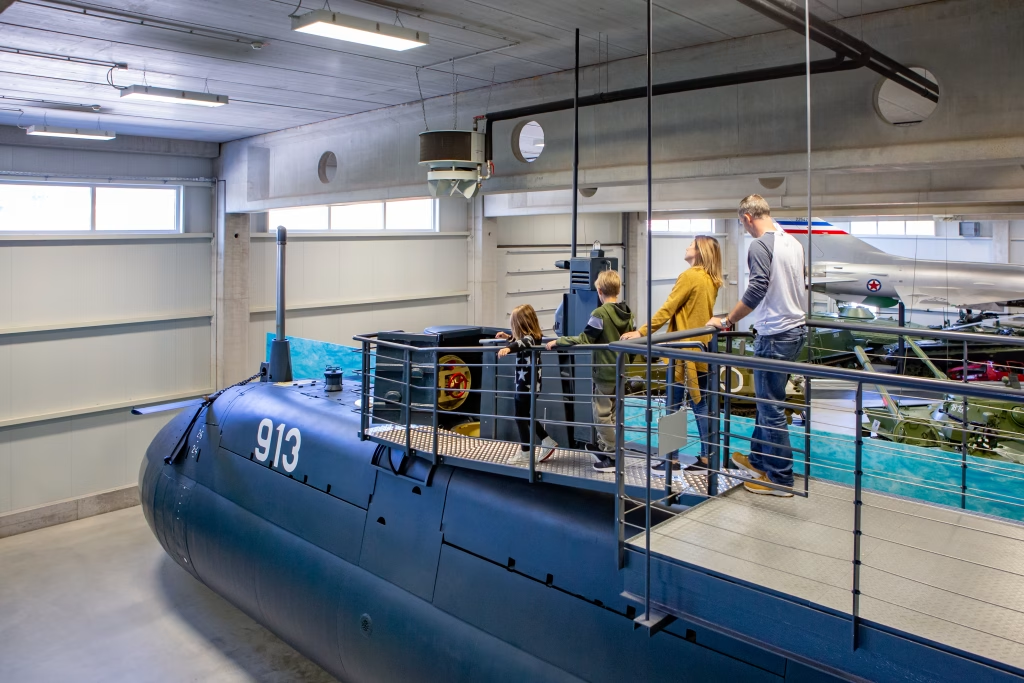
Opening hours during the Christmas and New Year holidays
The Park of Military History will be open during the Christmas and New Year holidays, from 21 December 2024 to 6 January 2025, between 10:00 and 16:00. The Park will be CLOSED on 1. and 2. January 2025.
The restaurant Kantina Pivka will operate in December on weekdays from 10:00 to 14:00, and on Saturdays from 12:00 to 16:00. It will be CLOSED on 1 and 2 January 2025
Opening hours in December
The Military History Park will be open in December from Monday to Friday between 11:00 and 14:00, and on Saturdays and Sundays from 10:00 to 16:00.
To visit the interior of the submarine and try the flight simulator, which are additional museum offerings, prior booking is mandatory. Please make a reservation by calling +386 (0)31 775 002 or emailing [email protected].
The Military History Park will be open during the Christmas and New Year holidays, from 23 December 2024 to 5 January 2025, between 10:00 and 16:00. The park will be CLOSED on 25 December 2024 and 1 January 2025.
On This Merry Day of Culture, 3 December 2024, we are offering all visitors a 50% discount on tickets for the basic museum tour. The Park of Military History will be open on this day from 10:00 to 15:00.
The restaurant Kantina Pivka will operate in December on weekdays from 10:00 to 14:00, and on Saturdays from 12:00 to 16:00. During the Christmas and New Year holidays, it will follow the same schedule but will be CLOSED on 24, 25 December 2024 as well as on 1 and 2 January 2025. On sunday, 29. December it will be OPEN.
WAR STORIES – UKRAINE UP CLOSE Exhibition Opened at the Park of Military History
On Wednesday, November 27, 2024, the Park of Military History inaugurated a new exhibition titled WAR STORIES – UKRAINE UP CLOSE.
Military museums typically focus on preserving and interpreting the history of past wars and conflicts. So why the interest in a current war, one that is still ongoing? At the Park of Military History i, we believe that the outbreak of war in Europe, along with the growing threat of larger-scale conflicts, has given us a new mission: to raise awareness of the horrors of war and the unimaginable suffering it brings—not just to soldiers but to everyone, including the most vulnerable members of society. Modern technology and increasingly powerful weaponry have made it so that the effects of war extend far beyond the frontlines, deeply affecting civilian areas as well. It would be difficult to convey this reality more effectively to museum visitors than through the photography of Eddy van Wessel, for whom bearing witness to the horrors of war through his lens is a lifelong mission.
The Park of Military History was invited to participate in this exhibition project, WAR STORIES – UKRAINE UP CLOSE, by the Netherlands’ National Military Museum. The photographic exhibition features images captured by renowned Dutch photographer Eddy van Wessel during his visits to the frontlines and hinterlands of Ukraine. It offers a harrowing insight into the devastation caused by aggression and the immense suffering of the affected population. Van Wessel’s photographs are the result of his persistence, determination, and genuine interest in the human condition. The war in Ukraine is not the first conflict he has documented—his camera has also witnessed the battlefields of Bosnia, Chechnya, Iraq, and Syria. In his work, he avoids focusing on the strategic military aspects of operations or the power of armed forces and their weaponry. While often described as a war photographer, he is more accurately a chronicler of war’s consequences. His lens consistently seeks to capture the suffering of individuals caught in the whirlwind of war and the trials of their everyday lives. The message conveyed by van Wessel’s photographs is a powerful protest against the horrors and futility of war. But his work speaks not only through images—he also provides captions for the exhibition’s photographs. No one can describe the moments captured in his photographs better than he can.
In addition to the exhibition at the Park, Eddy van Wessel’s photographs are currently on display at the Netherlands’ National Military Museum and the Leica Gallery in Amsterdam. As a documentary photographer, van Wessel collaborates with numerous renowned publications worldwide, including Stern, Paris Match, LeMonde2, Spiegel, and The Washington Post. His work has earned him numerous prestigious awards, such as Photographer of the Year, presented by the Årets Bild committee in Sweden. Furthermore, he has won the Silver Camera Award for the best photograph at the prestigious international competition an impressive four times.
As part of the WAR STORIES – UKRAINE UP CLOSE exhibition, the Park of Military History also features a presentation of one of the war’s poignant stories—the story of the orphanage for children from the Luhansk region No. 2, which found refuge in the village of Slavina, just 5 km from the Park.
The institution first faced the turmoil of war in 2014, when separatist forces attempted to deport it to Russia. Thanks to the determination and extraordinary courage of the orphanage’s head, Dr. Kateryna Dontsova, the children were able to return to Ukraine. The orphanage was re-established in the city of Severodonetsk, but in February 2022, due to Russian aggression, it was forced to relocate overnight to Lviv in western Ukraine, where conditions were extremely harsh due to frequent shelling. Thanks to a humanitarian campaign initiated by the Association of Friends of Youth Ljubljana Moste – Polje and POP TV, as well as collaboration between the Government Office for the Care and Integration of Migrants, relevant Ukrainian authorities, and the Ukrainian Embassy in Slovenia, the orphanage was relocated to Slovenia in early May 2022.
With the support of Civil Protection, the Municipality of Postojna, the Secondary School of Forestry, Woodworking, and Health Postojna, and, above all, the Slavina Local Community, which offered the village cultural center for accommodation, a comfortable home was established in Slavina for twenty Ukrainian orphans aged one to six. Alongside the children, part of the orphanage staff also moved to Slovenia, including eight nurses and caregivers, as well as three doctors.
The keynote speaker and official opener of the exhibition, Mr. Vojko Volk, State Secretary for International Affairs and National and International Security, reminded attendees of how quickly we tend to forget. He drew a parallel between the situation the Ukrainian people have endured for over a thousand days and the experiences of Slovenians during World War II and the independence process. In this context, he emphasized that the Republic of Slovenia will continue to support Ukraine for as long as necessary, with the aim of ensuring lasting peace in Europe.
At the opening, Eddy van Wessel expressed his gratitude to the Park for showcasing his profoundly moving photographs, which leave no one indifferent, in this part of Europe. Reflecting on his recent journey to Ukraine, from which he had returned only a few days prior, he stressed that Ukraine must not be forgotten. Even when the fighting ends, the country and its people will face a long road to recovery.
The opening ceremony was also attended by the Dutch Ambassador, His Excellency Johan Verboom, who expressed his pride and admiration for the courage continually demonstrated by Eddy van Wessel. Through his journeys to war-torn regions of Ukraine, van Wessel brings back photographs that tell the world stories from the frontlines and the hinterlands. Ambassador Verboom emphasized that the world must not only see and hear these stories but also act on them, supporting Ukraine in its defense of its sovereignty.
The Ukrainian Ambassador to Slovenia, His Excellency Andrii Taran, highlighted the suffering and loss caused by attacks on schools, universities, churches, and other institutions that form the heart of Ukrainian identity. He also praised the courage of Eddy van Wessel, who risks his life to bring news from Ukraine to those living in freedom, where the same values are being upheld.
The event was attended by several ambassadors and other high-ranking foreign diplomatic representatives from EU and NATO member states, as well as the head of the Regional Orphanage of Luhansk Region No. 2, Dr. Kateryna Dontsova, along with the institution’s staff, and many other guests.
Following the formal opening of the exhibition, there was a screening of the film Eddy’s War, produced by Zeppers Film & TV and directed by Joost van der Valk. The film offers a behind-the-scenes look at Eddy van Wessel’s work and showcases the process behind the creation of the photographs, which will be on display at the Park of Military History until spring.
The park has been awarded the SILVER HOSPITALITY AWARD 2024 in the category of EXCURSION DESTINATIONS!
We are delighted and proud to announce that the Slovenian Tourist Association has awarded the Park of Military History the Silver Hospitality Award 2024 in the category of excursion destinations.
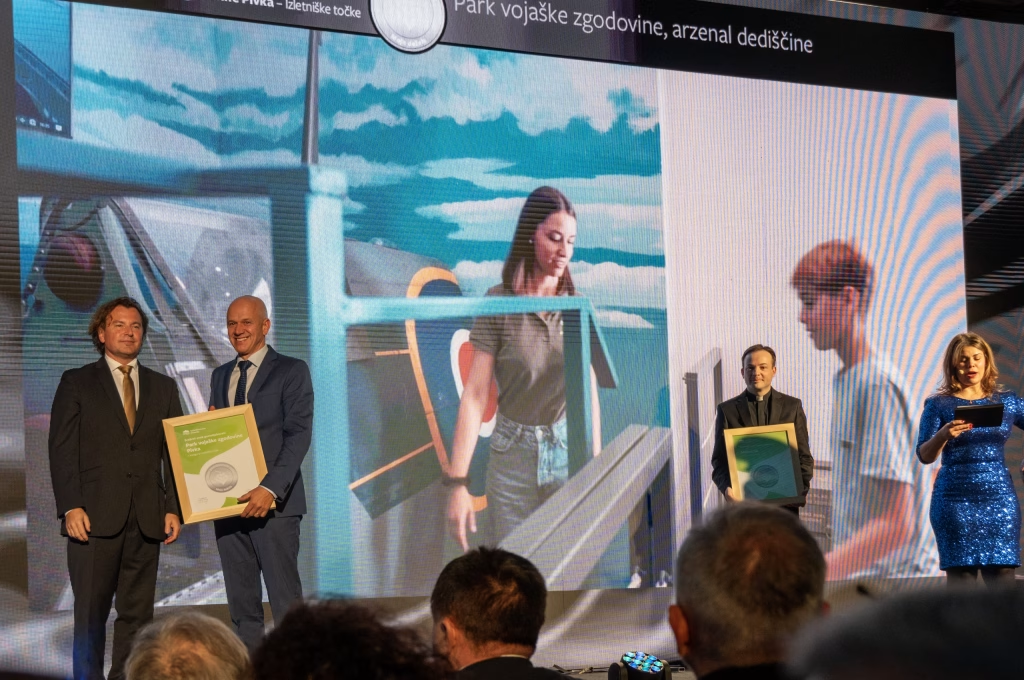
The prestigious award was presented to the Park at the official ceremony of the Slovenian Tourist Association during the Slovenian Tourism Days 2024 in Laško on Monday, 18 November 2024.
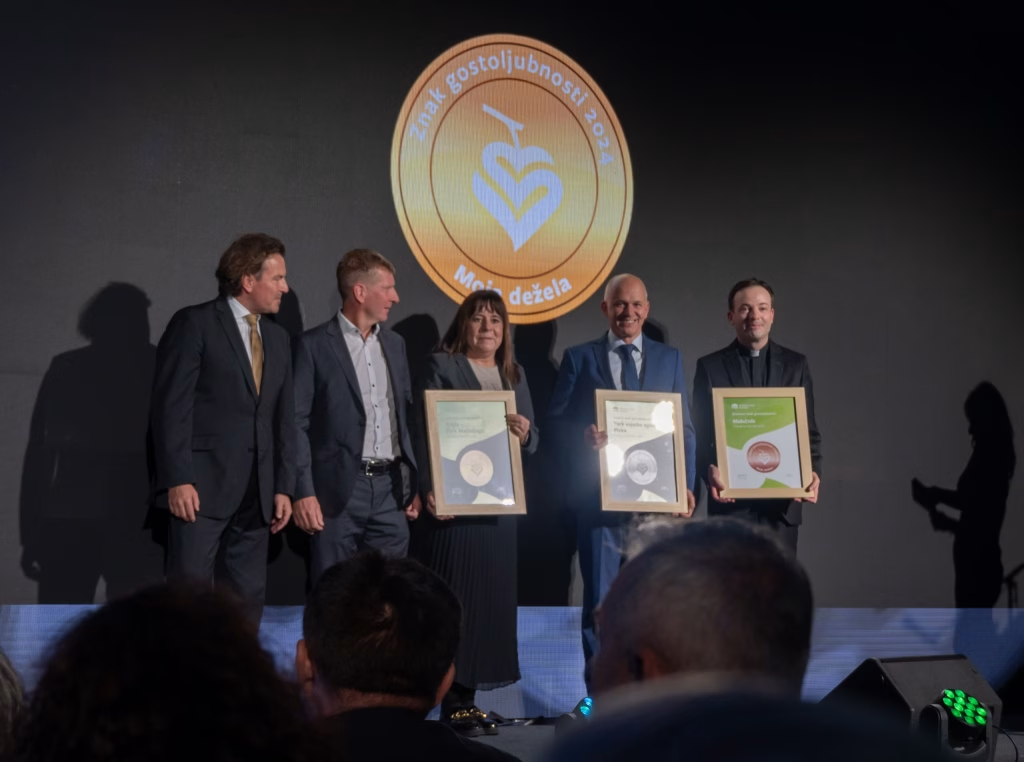
We are very pleased that our Park has been recognised as one of the most visitor-friendly destinations in the Republic of Slovenia. We are especially proud because we have already received the Valvasor Award this year, the highest professional recognition, and the Hospitality Award is therefore an important confirmation that we are on the right path – that we know how to and are capable of presenting heritage to our visitors in an engaging way.
